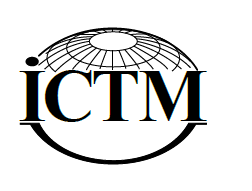
International Council for Traditional Music - ICTM
AustriaContact: +386 51 429 973
Postal address: International Council for Traditional Music Lokavec 130 B 5270 Ajdovščina Slovenia
Geographic Coverage of NGO’s expertise: Albania, Argentina, Australia, Austria, Azerbaijan, Bangladesh, Belarus, Belgium, Bosnia and Herzegovina, Brazil, Bulgaria, Canada, China, Costa Rica, Côte d'Ivoire, Croatia, Cyprus, Czechia, Denmark, Ecuador, Estonia, Ethiopia, Finland, France, Georgia, Germany, Ghana, Greece, Guatemala, Hungary, India, Indonesia, Iran (Islamic Republic of), Ireland, Italy, Japan, Kazakhstan, Kenya, Kuwait, Lao People's Democratic Republic, Latvia, Lebanon, Lithuania, Madagascar, Malawi, Malaysia, Mexico, Mongolia, Montenegro, Mozambique, Netherlands, New Zealand, Nigeria, North Macedonia, Norway, Oman, Palau, Papua New Guinea, Peru, Philippines, Poland, Portugal, Republic of Korea, Romania, Russian Federation, Serbia, Singapore, Slovakia, Slovenia, South Africa, Spain, Sri Lanka, Sudan, Sweden, Switzerland, Thailand, Türkiye, Uganda, Ukraine, United Republic of Tanzania, Uzbekistan, Vanuatu, Venezuela (Bolivarian Republic of), Viet Nam, Zambia, Zimbabwe
URL: https://www.ictmusic.org
Download brochure
Year of creation: 1947
Safeguarding measures:
Safeguarding measures:
- identification, documentation,
research (including inventory-making)
- preservation, protection
- promotion, enhancement
- transmission, (non-)formal
education
- revitalization
Main areas of work related to the Convention:
Relevant projects and initiatives
International Council for Traditional Music – ICTM, whose secretariat is in Canberra, aims to further the study, practice, documentation, preservation and dissemination of traditional music, including folk, popular, classical and urban music, and dance, of all countries. The Council organizes meetings, conferences, study groups and colloquia, maintains an active website and a membership directory and publishes journals and bulletins.